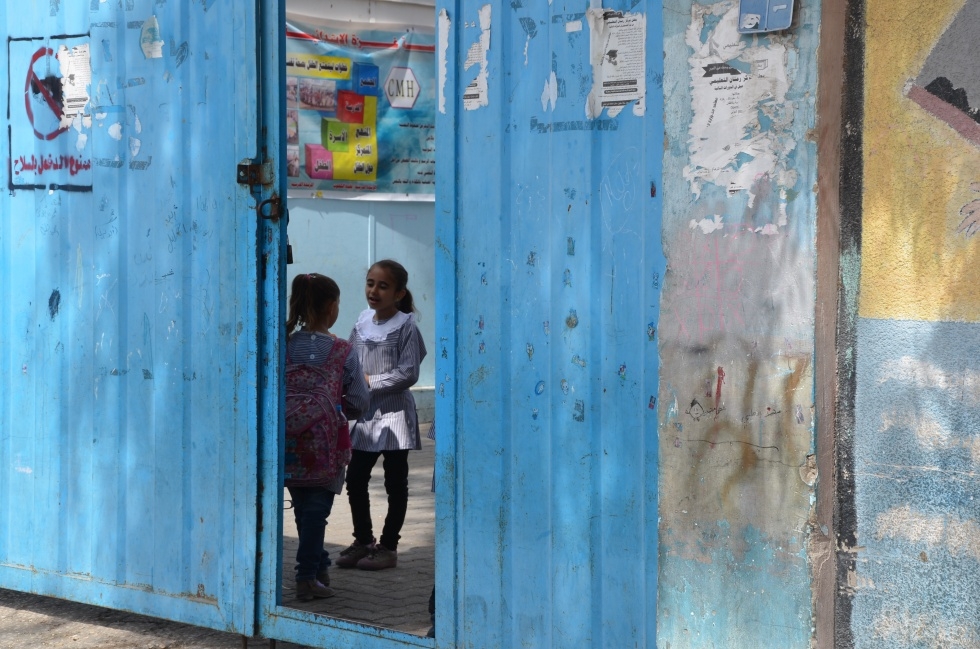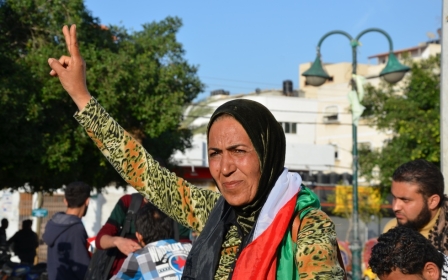Realities of Palestine unity hit home in Gaza, Ramallah

As Tuesday's deadline for peace talks between Israel and the Palestinian Authority arrived without any progress, people in the Gaza Strip and Ramallah are reflecting on an agreement which was last week actually achieved - the reconciliation deal between Fatah and Hamas.
Over this weekend, the Palestinian Liberation Organisation met to kickoff a five-week process of strategising how the two parties, split since 2007, will come together. The prospect of Palestinian unity has split Israeli officials and caused a stir about whether Hamas will recognise Israel. But what do Palestinians make of potential unity?
After the celebrations and fireworks last week, there were few signs on Gaza’s streets at the weekend that a reconciliation was underway, save the arrival of previously banned West Bank newspapers.
Many people in Gaza are more concerned about what lies beneath their streets - there are thousands of tunnels linking the 360 square-kilometer enclave to Egypt, allowing supplies to reach an area which has been under an Israeli sea and land blockade since 2007.
Since the ouster of Egyptian President Mohamed Morsi in June 2013, tensions between Egypt and Hamas, an offshoot of the Muslim Brotherhood ruling Gaza, have escalated. Egypt has accused Hamas of allowing gunmen to slip through the tunnels into the nearby Sinai desert and Cairo’s forces have reportedly destroyed at least 1,370 of them in response.
New MEE newsletter: Jerusalem Dispatch
Sign up to get the latest insights and analysis on Israel-Palestine, alongside Turkey Unpacked and other MEE newsletters
The destruction of the tunnels has not only made it difficult to get food and other supplies into Gaza, officials say revenues from taxing tunnel operators have also gradually dried up.
“Hamas is struggling after the closure of smuggling tunnels with Egypt,” said Ehab al-Nahal, the chairman of Gaza’s public sector employees union. “Hamas got taxes from tunnel operators, but now the tunnels are being strangled.”
Up to 46,000 Hamas government workers have been on lower than half-pay for nearly a year due to a lack of funds. They greeted the news of the Fatah-Hamas reconciliation with concern that they may lose their jobs when the government is formed.
One of the employees concerned about losing their job was Hamas government spokeswoman, Isra Almodalal.
Almodalal, whose father is senior Hamas member Tareq Almodalal, said she has been underpaid by more than half since she began her role in September 2013.
There has been no news on whether she or her colleagues would lose their jobs or be absorbed into the Palestinian Authority in Israeli-occupied West Bank, Almodalal said.
“Until now we haven’t had any news about losing our positions, but we are ready for it,” she said. “There are genuinely lots of fears and worries.”
Still, she added, “breaking the siege” as she described the reconciliation, is “an important step for the people on the street” where she said frustration has been growing.
“We needed this [the reconciliation] at this time,” she said.
Cautious mood in Ramallah
On Sunday in Ramallah, the central market was a hive of activity as sellers gathered under brightly coloured umbrellas in the hot sun.
There was a sense of business as usual after the reconciliation deal.
Unlike Palestinians in Gaza, the people of Ramallah have not taken to the streets in celebration, and there appears to be less apprehension over the arrangement.
Fruit seller Hazem Siyam said the reconciliation was good news for Gazans, but that he hadn’t seen any changes in his city yet.
“There is frustration on the ground with Abu Mazen’s [President Mahmoud Abbas] leadership and people here want some move for change and peace with Israel,” Siyam said.
“I don’t know if this will bring us closer to establishing a Palestinian state or further away,” he added.
A 10-minute walk from Siyam’s fruit stand, a group of Palestinians stepped off air conditioned buses and joined a slow trickle of people who had came to visit the mausoleum where Yasser Arafat, former Palestinian leader, is buried.
In the same complex, tucked behind the headquarters and residence of current Palestinian Prime Minister Mahmoud Abbas, a meeting of the Palestinian Liberation Organization is underway at the Mukaata, the PLO’s headquarters.
Emtyaz Saher was visiting the Mukaata on Sunday, but she hadn’t realised her site-seeing would coincide with a PLO meeting on the reconciliation deal.
“It will take time,” Saher said of Palestinian unity. “We’re quietly confident. It’s important for Palestinians to be together and it will mean life is easier for the people of Gaza, but I am not holding up my hopes just yet.”
While the two parties have made previous reconciliation deals – one in Cairo in 2011 and a second in Doha in 2012 – the terms of the agreements have never been implemented.
- Kate Shuttleworth is a New Zealand-born journalist and photographer currently based in Jerusalem.
Middle East Eye delivers independent and unrivalled coverage and analysis of the Middle East, North Africa and beyond. To learn more about republishing this content and the associated fees, please fill out this form. More about MEE can be found here.



